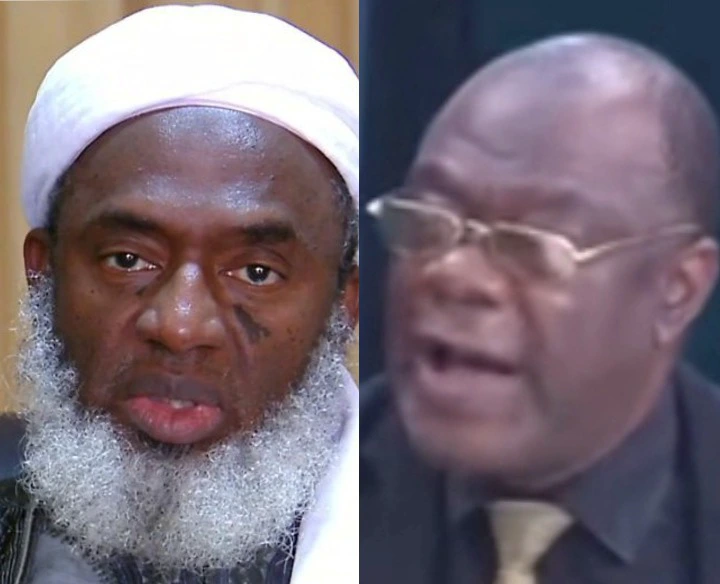Public affairs analyst Barrister Darlington Agomuo has voiced strong concerns about what he describes as inconsistent application of Nigeria’s anti-terrorism laws, warning that continued disparities in enforcement could deepen insecurity and erode public trust in government institutions.
Speaking during a recent appearance on Voice of the People from 12:46, Agomuo criticized the manner in which authorities pursue certain groups while leaving others who he claims pose equal or greater threats largely unchecked.
He argued that the uneven approach has created a growing perception that counter-terrorism efforts are influenced by political considerations rather than guided by law.
Agomuo particularly questioned the government’s handling of activities allegedly linked to Islamic cleric Sheikh Ahmad Gumi.
According to him, the cleric’s reported engagement with armed groups operating across the Sahel raises serious security concerns.
“Sheikh Gumi is running another terrorist organization, which he goes to commune with,” Agomuo asserted, insisting that such associations should draw closer scrutiny from law-enforcement agencies.
He contrasted this with the government’s aggressive prosecution of leaders of movements like the Indigenous People of Biafra (IPOB), who he noted have faced charges for speeches and political agitation.
Agomuo argued that while non-state armed groups actively involved in violence are allowed to operate with minimal restraint, individuals accused merely of inflammatory rhetoric face swift and forceful legal action.
This imbalance, he said, raises fundamental questions about fairness and objectivity in the application of national security laws.
The analyst also faulted the federal government for failing to hold accountable those who facilitate violence or maintain links to armed networks within Nigeria.
He warned that perceived impunity emboldens violent actors and weakens citizens’ confidence in state institutions.
According to him, “the legal system risks losing credibility when it appears to target one group while ignoring others engaged in similar or even more severe activities.”
Agomuo extended his criticism to the judiciary, accusing courts of selectively relying on foreign legal precedents despite Supreme Court pronouncements that domestic cases should prioritize Nigerian law.
He argued that such inconsistencies contribute to public frustration, particularly in regions that already feel marginalized or unfairly treated.
Pointing to the prosecution of Nnamdi Kanu, Agomuo argued that the emphasis on statements rather than verified acts of violence creates the impression of selective justice.
He noted that known violent actors in northern Nigeria have not faced equivalent levels of prosecution, a disparity he believes further undermines the government’s credibility in the fight against terrorism and banditry. View, More,
Explore More News By Using The Button.

